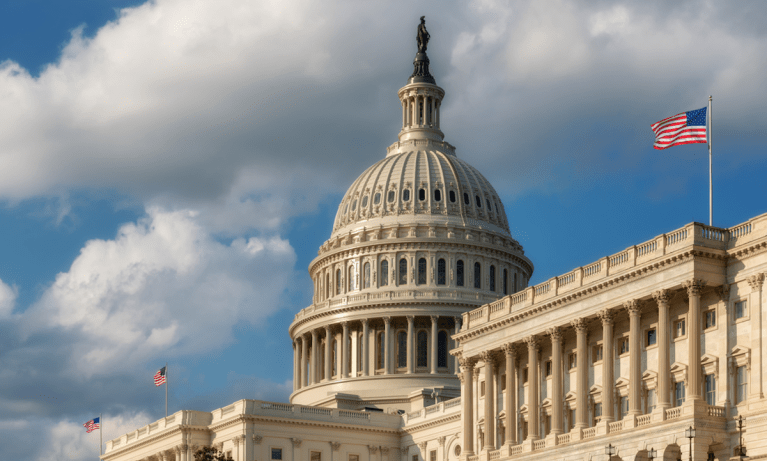The U.S. House of Representatives passed a bill Thursday (May 23) that would stop bureaucrats from issuing a central bank digital currency (CBDC) without explicit authorization from Congress.
The CBDC Anti-Surveillance State Act (H.R. 5403) passed by a vote of 216 to 192, with 213 Republicans and three Democrats voting to approve it, according to the website of the Clerk of the House.
The bill imposes its requirements because a CBDC could be detrimental to Americans’ right to privacy, House Financial Services Committee Chairman Patrick McHenry (R-N.C.) said in a Thursday press release.
“This bill requires authorizing legislation from Congress for the issuance of any CBDC — ensuring that it must reflect American values,” McHenry said. “If not open, permissionless and private, a CBDC is no more than a [Chinese Communist Party (CCP)]-style surveillance tool waiting to be weaponized.”
McHenry said in the release that the CCP uses a CBDC to track citizens’ spending habits and uses that data to create a “social credit system” that rewards or punishes them for their behavior.
“That type of financial surveillance has no place in the United States,” he said.
Advertisement: Scroll to Continue
The requirements of H.R. 5403 are necessary because the White House issued an Executive Order in 2022 that called for CBDC research and development, McHenry said.
Congresswoman Maxine Waters (D-Calif.), the top Democrat on the House Financial Services Committee, opposed the bill, saying on the House floor and in a press release that it would “stifle U.S. innovation and competitiveness abroad” and “undermine the federal agency that is the most critical to fighting inflation.”
Waters added that the bill would make the U.S. the first country in the world to ban a CBDC, that 134 countries and currency unions around the world are exploring or implementing a CBDC, and that China has a head start in this “next space race.”
“By allowing other countries, especially China, to race ahead of us, H.R. 5403 directly threatens the primacy of the U.S. dollar,” Waters said.
When announcing his executive order on the research and development of a CBDC in March 2022, Biden said key focus points included protecting the international standing and influence of the U.S. dollar as the world’s reserve currency, protecting privacy while providing interoperability with other CBDCs and not falling behind China.




